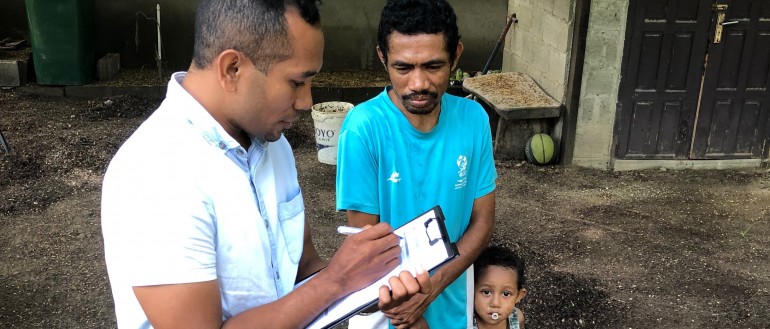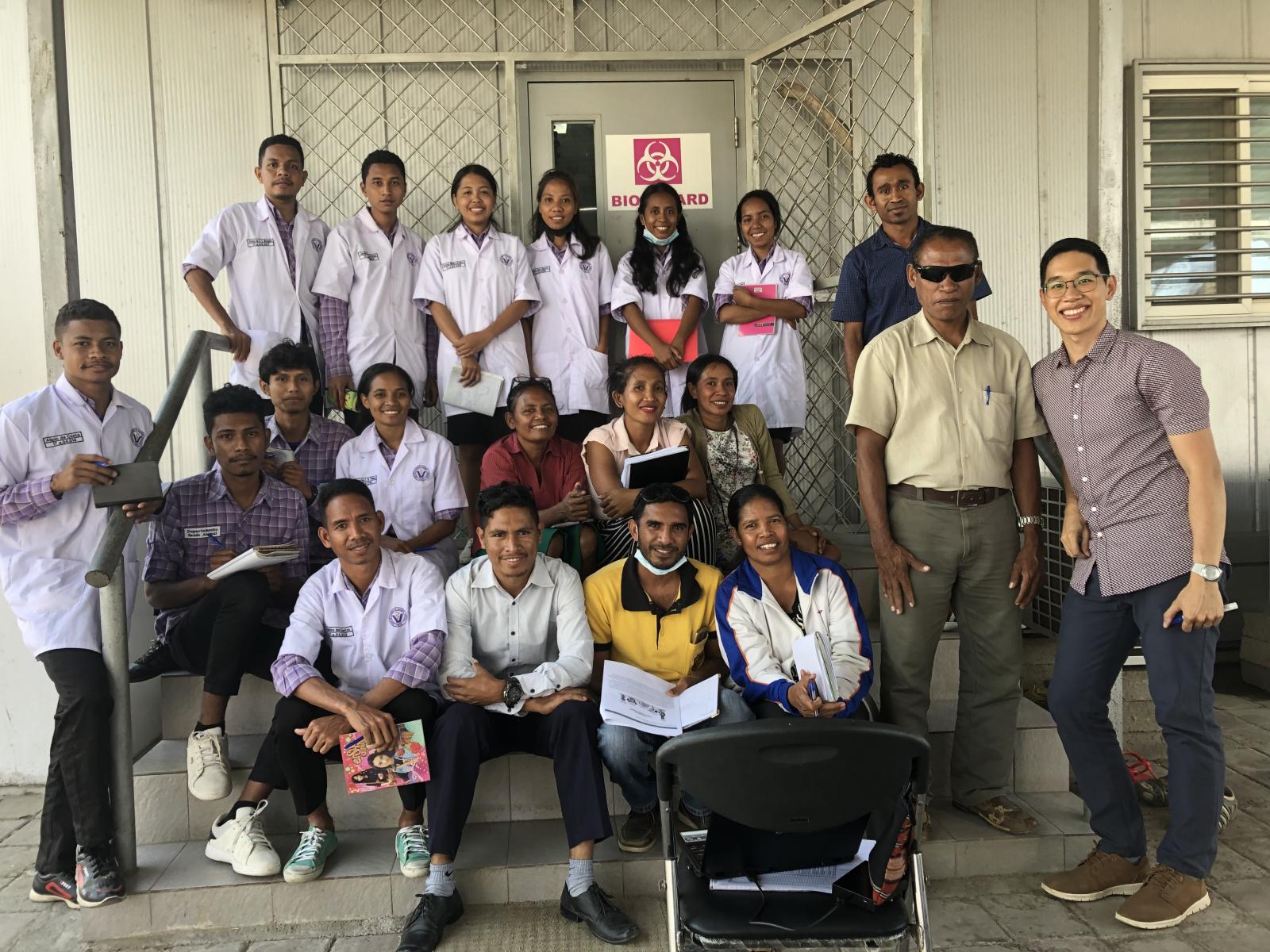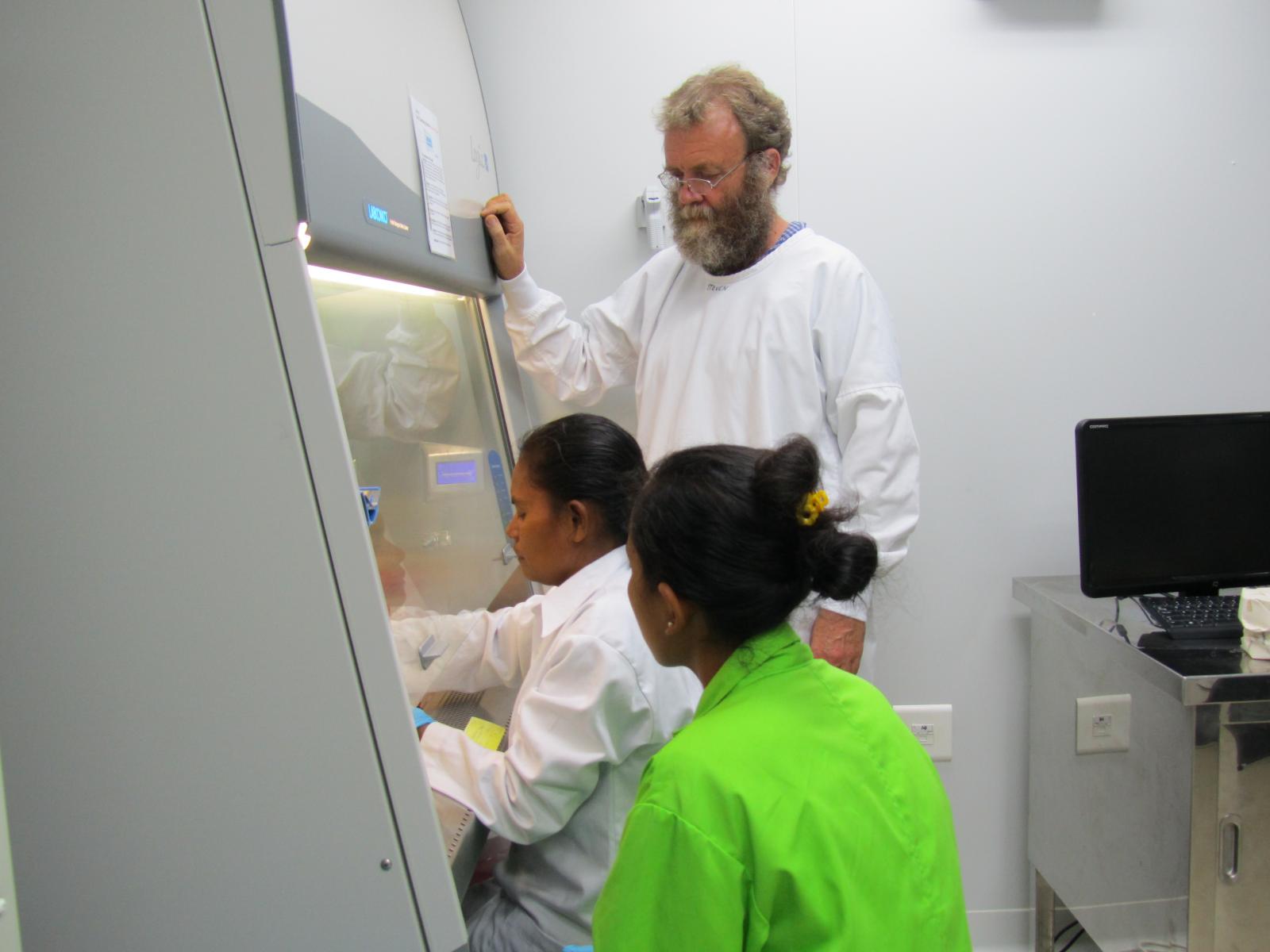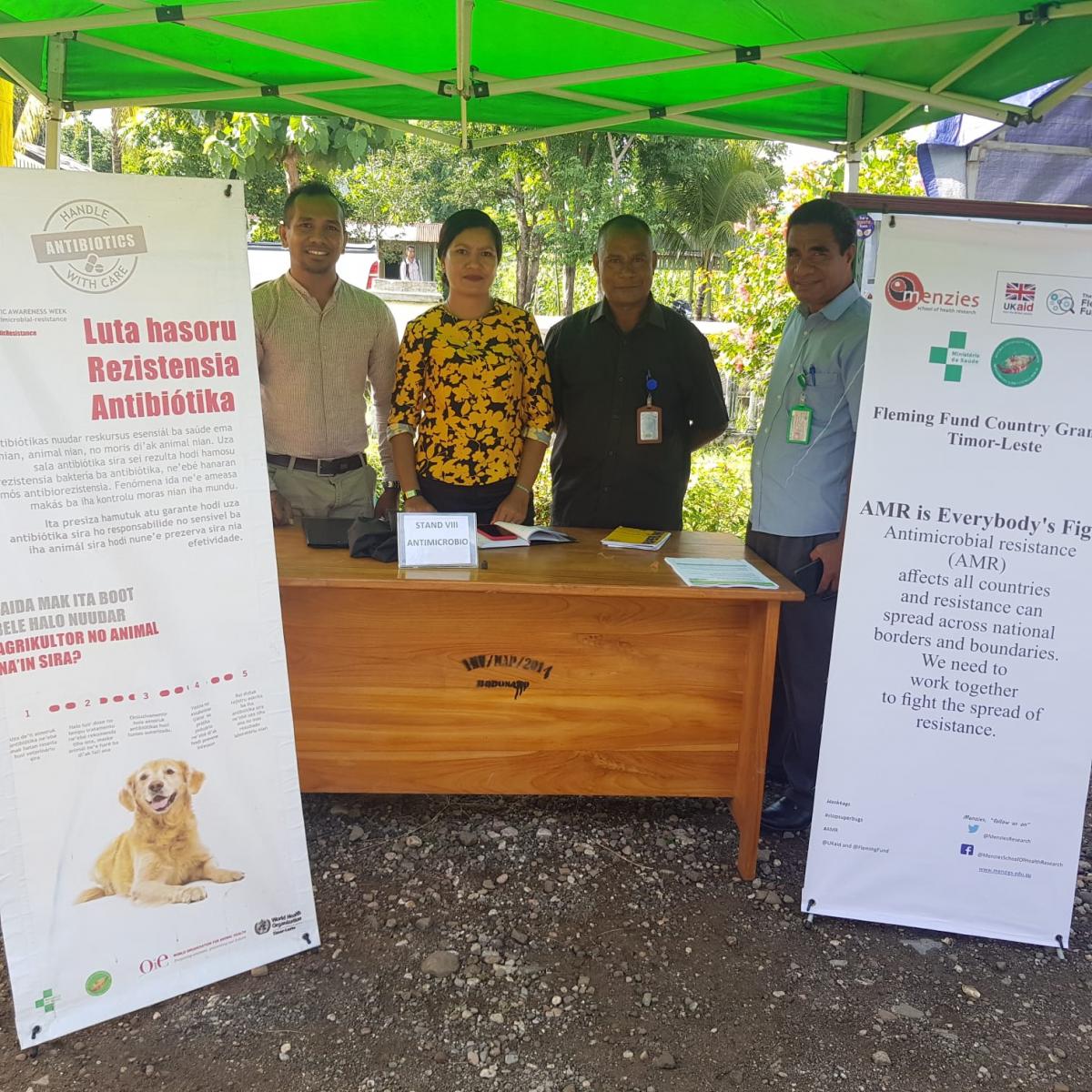Infectious diseases can be transmitted from animals to humans, which is why it is important to understand animal health in order to improve human health. Research also shows that antimicrobial resistance in bacteria either in humans, animals or the environment may spread from one to the other.
As a result, our team in Timor-Leste are quantifying antibiotic use in animals and determining the extent of antimicrobial resistance (AMR) in bacteria from animals.
We are currently working with the Timor-Leste Ministry of Agriculture and Fisheries (MAF) to strengthen their animal AMR and antimicrobial use (AMU) surveillance system, as well as build capacity in the Veterinary Diagnostic Laboratory.
Dr Shawn Ting, a Menzies senior research fellow and public health veterinarian who is the animal health lead for the project explains that antimicrobials are a critical tool for management of diseases, and it is essential to preserve their efficacy for use in human and animal health.
“This will assist the government to develop informed policies to combat the rising trend of resistance seen worldwide, and we are grateful to the Fleming Fund Country Grant for the support on this work,” said Dr Ting.
Currently, the project is focused on collecting samples from chicken farms and live bird markets around the country.
In the past few years, there has also been an increase in the import of young chickens for the poultry industry and animal feed into the country.
Dr Abrao Pereira, Menzies animal health epidemiology officer is coordinating field sample collection and training of government staff for this activity.
“We are concentrating on chickens because it is one of the fastest growing animal sectors in Timor-Leste, where there is potential for improper use of antimicrobials,” said Dr Pereira.
“Proper antibiotic use will not only preserve its efficacy in animals but also humans, because antimicrobial resistance can be passed between animals and humans."
The samples collected from the chickens will be sent to the Veterinary Diagnostic Laboratory for testing. The testing aims to use selected bacteria from the gastrointestinal tract of birds and determine their AMR profile.
Mr Steve Davis, Menzies laboratory scientist mentor is building capacity in the Veterinary Diagnostic Laboratory for these activities.
“Testing animal bacteria for resistance has never been done before in Timor-Leste. This will not only expand the capacity of the lab to investigate bacteria resistance, but improve the overall diagnostic capacity of the laboratory," said Mr Davis.
The team is also working to quantify antibiotics use in the animals. A protocol and recording system has been developed to assist with international reporting to the World Organisation for Animal Health. This builds on the existing database that MAF has developed.
Implementation of the project would not be possible without strong partnership and trust with the Ministry of Agriculture and Fisheries and Menzies the close working relationship with the National Directorate of Veterinary.
Dr Joanita Jong, the national director of the National Directorate of Veterinary said: “We are thankful for the expertise that Dr Shawn, Steve and Abrao has brought to our team, and look forward to future partnership opportunities”.
The project also has a strong focus on sustainability and leverages on collaboration with other organisations such as the Berrimah Veterinary Laboratory, University of Sydney, University of Queensland, Doherty Institute, World Vision and several layer and broiler enterprises in Timor-Leste.
Read more information about the Fleming Fund Country Grant project and our work in Timor-Leste here.
Feature image: Dr Abrao Pereira (left) conducting field interview during sample collection.
Menzies training session on antibiotic use and antimicrobial resistance at the Veterinary Diagnostic
Laboratory with Dr Shawn Ting (far right).
Mr Steve Davis (behind) supervising laboratory techniques at the Veterinary Diagnostic Laboratory.
Dr Joanita Jong (2nd from left) and team promoting proper antibiotic use and building awareness of
antimicrobial resistance at an agriculture event in Timor-Leste.




